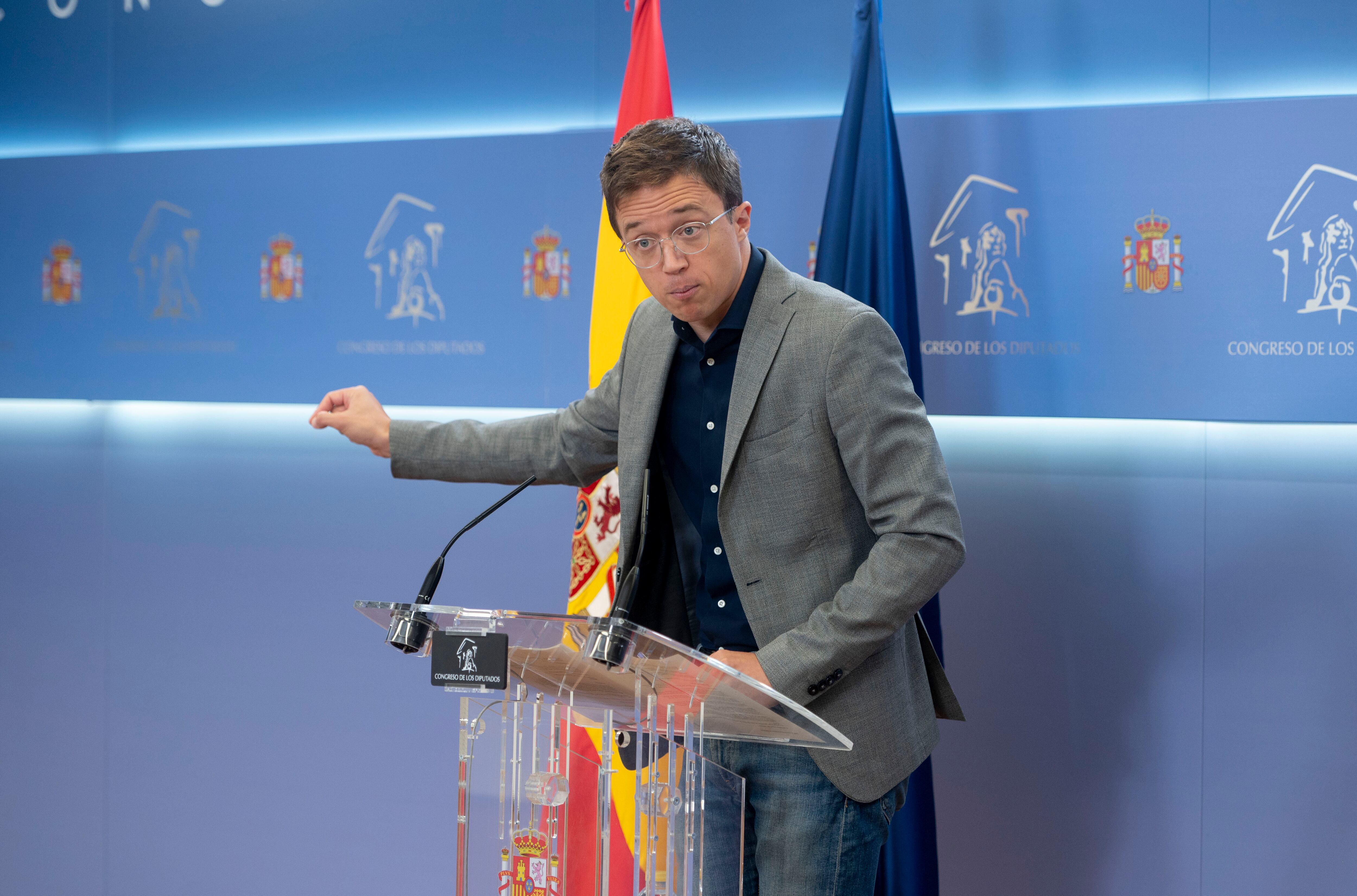
In these 10 years of his stage, Íñigo Errejón has been at the forefront of politics a person and character very accessible to the press. In public and in private. But also singular, peculiar, sometimes strange, with a notably ideological and intellectual profile, now not common, that he liked to take care of as much as his media image. After having experienced from the front line, but also among the darkness, multiple organic, foundational and traumatic battles in different brands of the left, Errejón joined that movement to decipher what is called Sumar and led by Yolanda Díaz as its parliamentary spokesperson in Congress. In these months he seemed at ease there, enjoying his unquestionable oratory ability without papers on the platform, forcing the introduction and discussion of unusual issues such as mental health or the reduction of working hours, dispatching without haste or restrictions the last place in the weekly press conferences, granting countless huddles of the record to the journalists in which he gave good clues and ideas on any topic and solving as best he could the always thankless office work of a project that was not very easy to coordinate. Until this week.
This past Tuesday, as after all Congressional Spokespersons’ Meetings, Errejón appeared in the press room last at the end of the morning and listed the topics of importance on the agenda, putting the accent that Sumar gives to the housing problem on all its fronts. It was there that he warned the PSOE Government, of which Sumar is a part, that if very specific proposals were not already produced, it could be facing “a crossroads for the rest of the legislature.” When he was later questioned about what he had intended to imply with that notice, he referred to a His appearance after the one recorded by the Housing Minister in Wednesday’s plenary session. Sumar was not convinced by Isabel Rodríguez’s “fateful” intervention, neither in substance nor in form, and deployed two spokespersons to disqualify the head of Housing from the chamber.
Errejón He then appeared in the corridors of the Lower House, as politicians do now when they want to unleash a broadside at a rival or a colleague, and expressed his “disappointment and “concern” for what he understood as a lost opportunity: “We have heard little empathy, very little self-criticism and zero proposals.” And he left another phrase recorded: “We will have to reflect on the next steps we are going to take in terms of housing.”
The journalists did not take it much further because they included that headline in the tumult of confusing statements, demonstrations, talks and confidences that the still spokesperson for Sumar distributed in those last 24 hours in full exercise to justify the strange alliance, quid pro quo, that Errejón himself confessed that he had been working with the PP for some time to push forward a bill of his formation regarding the regulation of abusive Redito Ad Libitum clauses on mortgage loans and credits. Sumar attracted the support of the PP, and many other groups, with up to 314 votes in favor and only 31 from Vox againstbut he left in the convoluted environment that resides in national and Congressional politics that it was good to be able to agree something with the popular ones. The PP, in exchange, kept those votes from Sumar and also from Podemos, so that the Government informs Parliament more when it decides to deploy military missions abroad.
That unusual exchange distracted a lot of attention during those 24 hours in Congress. Errejón tried to convince everyone, in public and private, that behind such an unusual collaboration there was almost a certain “humanitarian work” on his part to favor the alleged “social turn” announced by the PP after the summer. But also so that citizens could verify that, after “the 15 minutes of show” that they usually have at most if they attend to something in the control session with the President of the Executive on Wednesdays, “other moments” take place in the Cortes. more interesting, with more background work and with transversal agreements that affect the daily lives of normal people.”

